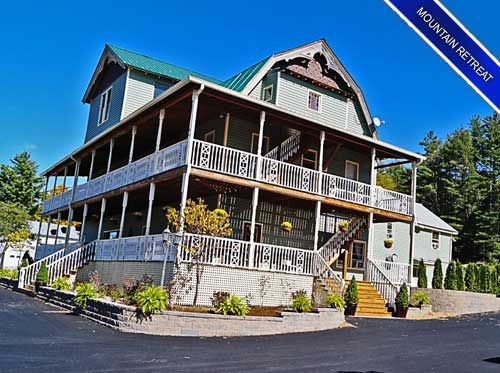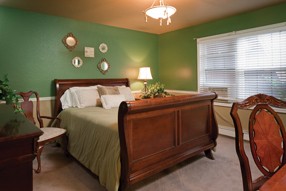Types of Percocet Addiction Treatment for Women
There are several different types of Percocet addiction treatment options, many of which are suitable for women in different situations. When women become addicted to a medication like Percocet, which according to the PMP is a medication that offers “effective pain relief with the risk of addiction,” it can be extremely detrimental to her health, her career, her loved ones, and all other aspects of her life.
Percocet is a medication that uses oxycodone, an addictive opioid, and acetaminophen to treat pain, but many individuals use it to get high. Over time, this kind of behavior can lead to an addiction that must be treated medically in order for them to recover. But what are the types of treatments for women with Percocet addiction?
Residential Treatment

An addiction to Percocet can require inpatient treatment
Residential, or inpatient, treatment is beneficial to women who especially need to be in a controlled environment during their initial recovery from Percocet addiction. These women may also need 24-hour care and time away from the stressors in their lives in order to fully focus on their recoveries. Women who are most suited for residential treatment will exhibit one or more of the characteristics below.
- Long-term abusers of Percocet
- Addicted to one or more substances
- Suffering from co-occurring mental disorders such as:
- Depression
- Bipolar disorder
- Schizophrenia
- PTSD
- Anxiety disorders
- Not surrounded by a strong support group from home
- In need of constant medical attention that either does or does not have to do with their drug abuse
- Have attempted to recover in a less controlled environment and are now in need of a more controlled one
Women who are addicted to Percocet can either attend long-term residential treatment or short-term residential treatment. According to the NIDA, “The best-known residential treatment is the therapeutic community (TC), with planned lengths of stay of between 6 and 12 months.” Women who live in TCs often do so in order to benefit from resocialization where they can interact only with others who are positive influences toward their recovery.
Short-term residential treatment can last anywhere from a few weeks to a few months, although most women who attend it should consider attending some type of outpatient treatment afterward.
Outpatient Treatment
Outpatient “treatment costs less than residential or inpatient treatment and often is more suitable for people with jobs or extensive social supports.” There are many different types of outpatient treatment; while some use group therapy, individualized sessions, and medication to help treat Percocet addiction, others may only provide drug education. For this reason, it is important for patients to research their facility before attending.
Outpatient treatment can be very beneficial to those with less severe addictions and more support from home. Also if a patient has a job, a family, or other obligations, she can arrange her treatment around these other responsibilities so that she is able to receive treatment while still living her life. Outpatient treatment is often wonderful for those who are attending treatment for the first time and do not have an intense addiction to Percocet.
Support Groups
Another type of treatment that is for those women with less severe addictions is a mutual-help group or a support group. These include groups like Narcotics Anonymous, Secular Organizations for Sobriety, and other groups that help drug abusers change their way of life.
Support groups offer a tight-knit treatment option where individuals can pull strength from each other. Often, the sponsor for the group is someone who has also been through drug addiction so group members are able to see someone who has been successfully recovered from an addiction. Support groups are extremely helpful to those who are in need of a less strict treatment option but one that still provides support and meets often.
Mother-Child Residential Substance Abuse Treatment
In some cases, women are the sole providers for their children or do not have anyone they can leave their children with while they attend treatment, especially if they are in need of inpatient care. According to the USDHHS, there are treatment options where “children continue to live with their mother in order to promote parental attachment and improve parenting skills.”
This can be extremely beneficial to those women who are struggling single parents and addicted to Percocet. In an environment such as this one, women can work on their own issues with Percocet abuse as well as their relationships with their children with the help of trained counselors. This option is necessary because there are many young mothers who are addicted to Percocet and other substances and need help to stop while also need to continue caring for their children.
Women Only Substance Abuse Treatment
Women only substance abuse treatment is also a fantastic option for women who abuse Percocet and/or other substances. This type of gender-specific treatment is often available as both residential and outpatient treatment and can be beneficial to female Percocet addicts for many reasons.
According to the NIDA, “Many life circumstances predominate in women as a group, which may require a specialized treatment approach.” For example, PTSD as a result of sexual abuse is more common in women with a drug abuse problem. These individuals would possibly feel safer and more able to talk about their experiences if they are in a treatment situation without men present.
Also women in treatment will often feel more comfortable in a situation where they are able to discuss their drug abuse and addiction in front of other women only. These treatment programs and facilities exist so that the treatment for patients can be as beneficial and comfortable as possible, making it easier for them to focus on their recovery instead of possible problems within the treatment itself.
There are many types of Percocet addiction treatment that can be suitable for women and beneficial to their needs. While treatment is necessary, it is important that the individual patient feel comfortable in the program and facility she attends, which is why these options are all available and accessible to women who want to stop abusing Percocet.
Sierra Tucson
This center in scenic upstate New York may seem like a vacation for hard-working nine-to-fivers, but between horseback riding, volleyball games, and trips to the beach, Saint Jude Retreats offers a tough but compassionate and supportive program that expects a commitment to personal accountability.
Details ›Saint Jude Retreats
A variety of treatment methods firmly rooted in sound research provide solid ground for healing at this high desert treatment center located north of Tucson.
Details ›Journey Healing Center
Serenity and tranquility are elemental at this ultra-comfortable, luxury treatment center nestled at the base of Utah’s Wasatch Mountain Range in Sandy, Utah.
Details ›


